When a composer begins an opera, they create a world. You don’t need a full-scale overture: the tear-stained violins that Verdi drapes over the opening bars of La traviata do the job perfectly. The orgasmic upswing that launches Der Rosenkavalier, the cosmic hum that sets the Ring on its course — those very first notes tell you exactly where you are and what’s at stake. Puccini gets it just right at the start of La bohème: a cheerful orchestral clap on the shoulders that shoves you straight into the boisterous, bantering world of these four incurable optimists.
Not here. André Barbe & Renaud Doucet’s new production for Scottish Opera opens in modern Paris, with no Puccini to be heard. Tourists snap photos, an accordion player busks on a street corner and a woman pokes about in an antique shop. It’s basically Amélie. Finally, faintly, we hear the crackle of a 78 on a wind-up gramophone, playing Puccini’s opening bars. The orchestra drifts in shortly afterwards, by which time the woman (who turns out to be Mimì) is lost in a vintage reverie that happens to share the plot of La bohème. The rest of Act One is played out on a collection of secondhand furniture in the middle of the street. It’s cleverly done. And it’s nothing but an unnecessary distraction from the story that Puccini set out to tell.
Perhaps I’m being a killjoy. But that act of petty vandalism, that ‘Barbe and Doucet were here’ scratched on to the very start of the opera, nettled me beyond all reason. Lose Puccini’s opening flourish and you lose the musical connection to the beginning of Act Four, where it returns: the story coming full circle. Never mind, because Accordion Guy popped up again and played right over that too. To be fair, he went down a storm. And it’s true, much of this production gets it spot-on: the enjoyably splashy orchestra under Stuart Stratford; the lively, laddish rapport of the four young men; the fresh voice of Luis Gomes as Rodolfo; David Stout’s tough nut of a Marcello, and an endearingly gauche Mimì, Hye-Youn Lee — who takes her character seriously enough to let cracks show in her most rapturous singing.
It looks a treat, too, with the story proper updated to the 1920s. Act Two, in particular, is a regular carnival. Musetta — played by Jeanine de Bique as Josephine Baker, and sung with chrome-plated flair — makes her entrance trailing a cheetah on a leash, and the whole thing is full of details that fill out the opera’s world. Why is Marcello buying sweets for that little girl, and why does her beret look so like his? Barbe & Doucet clearly love La bohème. So why put up gratuitous barriers, such as the cheap vanishing trick that undercuts the touchingly performed final scene? The usual rationale is that these interventions help draw a modern audience into an unfamiliar world. But have you ever witnessed a bohème where the audience seemed unengaged? Me neither.
The beginning of Verdi’s Don Carlo is problematic. From the tangle of different editions left by the composer, Nicholas Hytner’s 2008 production for the Royal Opera opts for the 1886 Modena version, omitting an opening chorus that (to my mind, anyway) deepens the opera’s moral universe. No matter: Don Carlo is overwhelming in any form. Hytner and designer Bob Crowley understand that visual spectacle is written into the drama, and they tread a generally skilful line between staginess and naturalism. Crowley’s sets are cinematic in scale, with towering, shadowy architectural forms never quite obscuring prison walls: a potent symbol for an omnipresent church more interested in damnation than in love. Hytner fumbles only once, surprisingly enough in Act Three and the most spectacular scene of them all. You shouldn’t promise an auto-da-fé without at least letting us see some heretics sizzle.
This is the first time that this production has been revived without a superstar lead. That shouldn’t matter, and indeed it doesn’t: each member of this cast finds their own musical path to dramatic truth. Kristin Lewis’s skittish, volatile Elizabeth achieved an impressive control in her final scenes, even while Bryan Hymel — a Carlos on the edge — pushed his voice mercilessly (and grippingly) to breaking point. Christoph Pohl maintained an understated dignity as Posa, and Ekaterina Semenchuk’s florid Eboli deepened into a figure of tragic grandeur in ‘O don fatale’. Ildar Abdrazakov, as Philip II, dropped bluster for vocal tenderness at precisely the moment in the plot where this left him most vulnerable to Paata Burchuladze’s reptilian Grand Inquisitor. The absence of a marquee name may also have curbed the Covent Garden crowd’s tendency to give kneejerk ovations mid-flow — freeing conductor Bertrand de Billy to drive a taut, wholly compelling account of this mightiest and most troubling of grand operas.
Got something to add? Join the discussion and comment below.
Get 10 issues for just $10
Subscribe to The Spectator Australia today for the next 10 magazine issues, plus full online access, for just $10.
You might disagree with half of it, but you’ll enjoy reading all of it. Try your first month for free, then just $2 a week for the remainder of your first year.

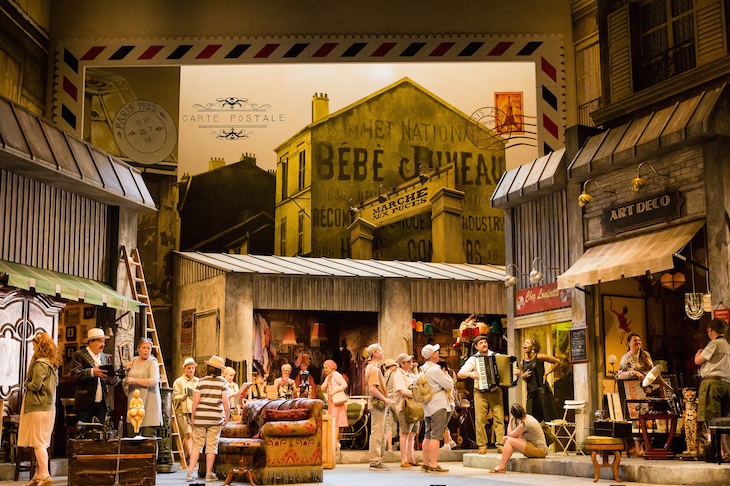

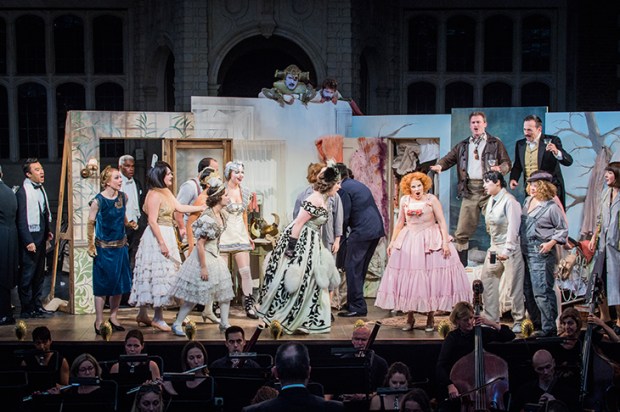
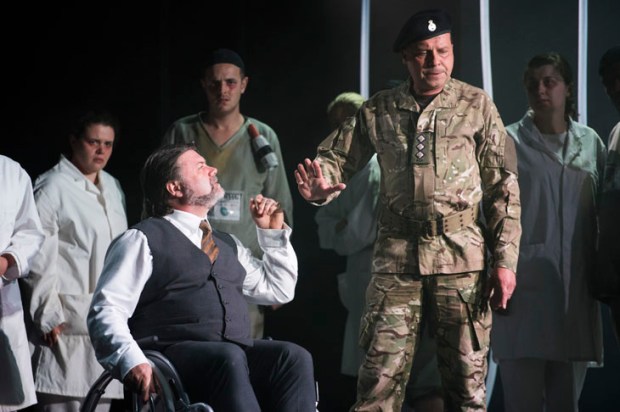
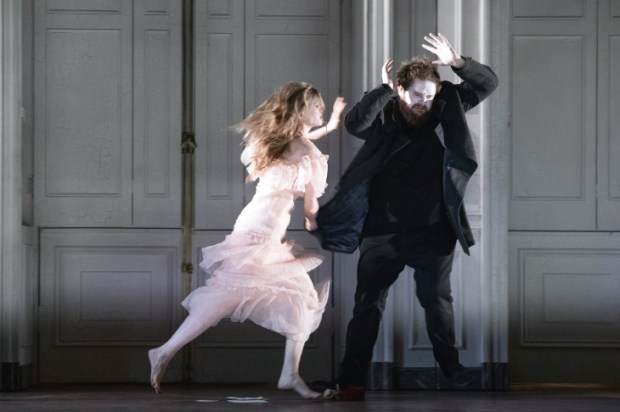
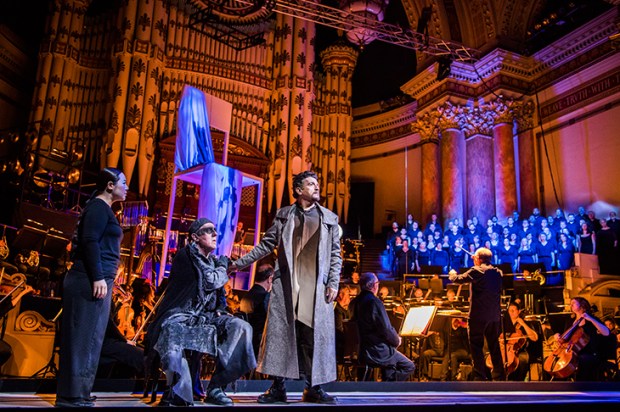
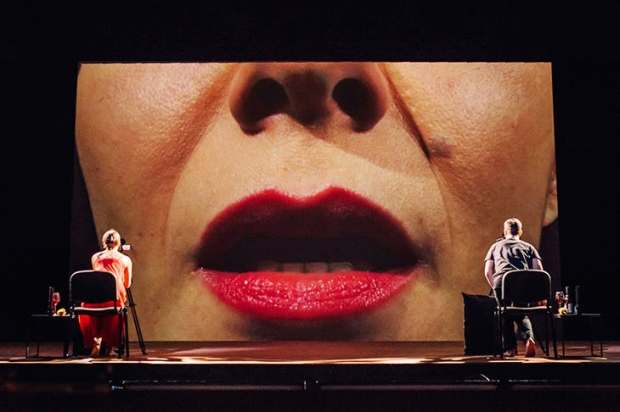






Comments
Don't miss out
Join the conversation with other Spectator Australia readers. Subscribe to leave a comment.
SUBSCRIBEAlready a subscriber? Log in